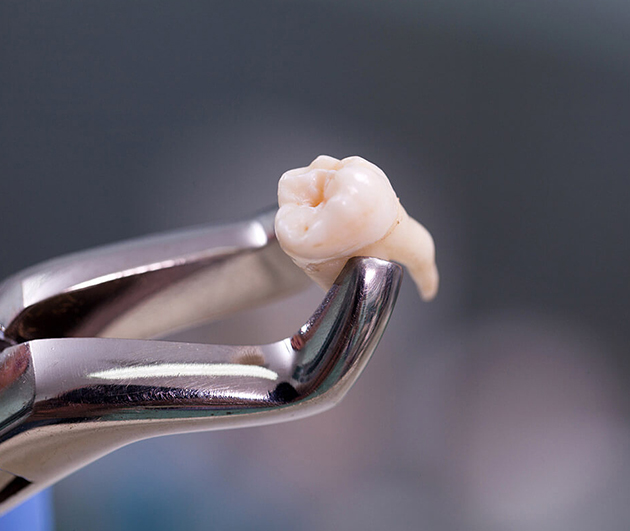
Extractions In Hillsboro, KS
Despite your best efforts, teeth sometimes need to be removed to protect your health. When we've discussed all other possibilities, and you've decided on extraction, we'll take every step to help you. Your well-being always takes priority in any treatment decision. Some patients prefer sedation to help with oral surgery, and we can review these options in your treatment plan. We take every measure to make sure even minor surgical procedures are as comfortable as possible.
Some teeth are removed more easily than others, but the Newton Dental Studio team takes pride in helping every patient get numb with modern anesthesia. Once the anesthesia takes effect, Dr. Davidson uses specialized instruments to elevate the tooth out of place. You will receive specific post-op instructions to help you care for the area after your procedure.
While our immediate concern is the short-term management of your care, we will also discuss your long-term plans for replacing missing teeth. Leaving a space is always an option, but spaces in your smile can create appearance and function challenges that are important to consider. Teeth slowly shift or migrate into open spaces and minimizing the effects of an unbalanced bite now can prevent issues later in life.
Although our primary goal is to help your teeth stay healthy and functional, an extraction is sometimes the best way to preserve the overall health of your mouth. Since teeth help nourish our bodies and support our confidence, we will help you create a plan that fits your short and long-term goals.
Tooth extraction may be recommended commonly.
- A severely decayed or damaged deciduous tooth, commonly called a "baby" tooth, may resist natural shedding. If roots do not shrink or the tooth fuses to the bone, it can impact your child's smile development. We monitor this closely and advise on the timely removal of a baby tooth to ensure proper emergence of the permanent tooth.
- If a severely decayed tooth is left untreated, it can damage healthy structures, cause irreversible harm, and lead to dental infections. When extensive damage occurs and restoration is not possible, dental extraction may be necessary.
- If a tooth has severe fractures, it may be irreparable depending on the extent of the damage. If too much structure or the root is compromised, extraction might be needed.
- Wisdom teeth, the last permanent molars, may cause problems due to misalignment, impaction, or decay. Addressing these issues is often recommended in young adults to prevent complications.
- Crowded teeth arise when permanent teeth exceed the available space in the jaw. To achieve a well-aligned, attractive, and healthy bite, removing specific teeth may be necessary as part of orthodontic treatment.
What is the procedure for performing a tooth extraction?
At our office, we are committed to providing exceptional dental extraction care, regardless of the underlying reasons. Our dentist will carefully evaluate your medical and dental histories and discuss any specific considerations for your treatment.
It is important that you inform us about any existing medical conditions or medications you are currently taking. In some cases, additional precautions such as antibiotics or a change in medication may be necessary. We may also require a medical clearance. Please follow all pre-surgical instructions and let us know if you are feeling unwell or experiencing any symptoms on the day of your surgery.
Our primary objective is to minimize anxiety and ensure your comfort throughout the tooth extraction process. Before the procedure, we will address any medical concerns or precautions and provide you with detailed pre-surgical instructions. We will also discuss post-surgical recommendations, including the possibility of replacing the extracted tooth or teeth and the best options for your ongoing care.
To accurately assess the tooth and determine the most suitable extraction method, we will conduct a thorough examination and use digital radiographs as needed. Extractions are typically categorized as either "simple" or "surgical extractions."